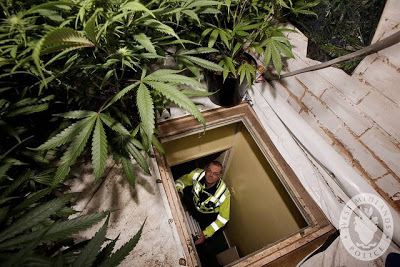Worse, even pharmaceutical tetrahydrocannabinol (THC) claims have such poor evidence that it undercuts belief that it leads to even a small improvement in symptoms of anxiety in individuals with other medical conditions, such as chronic pain or multiple sclerosis. If you are the lucky beneficiary of the placebo effect, that's fine, but that is not medicine.
Medicinal cannabinoids include medicinal cannabis and pharmaceutical cannabinoids, and their synthetic derivatives, THC and cannabidiol (CBD). Around the world, these are increasingly sold using claims they are medicinal, including for the treatment of mental health disorders. However, there are concerns around the adverse effects of this availability, as there is a large body of evidence indicating that non-medicinal cannabis use can increase the occurrence of depression, anxiety, and psychotic symptoms.

Professor Louisa Degenhardt of the National Drug and Alcohol Research Centre (NDARC) at UNSW Sydney, Australia, and lead author of the study said in a statement, “Our findings have important implications in countries where cannabis and cannabinoids are being made available for medical use. There is a notable absence of high-quality evidence to properly assess the effectiveness and safety of medicinal cannabinoids compared with placebo, and until evidence from randomised controlled trials is available, clinical guidelines cannot be drawn up around their use in mental health disorders.”
The authors set out to examine the available evidence for all types of medicinal cannabinoids. They included all study designs and investigated the impact on remission from and symptoms of six mental health disorders in adults: depression, anxiety, attention-deficit hyperactivity disorder (ADHD), Tourette syndrome, post-traumatic stress disorder (PTSD), and psychosis.
They included published and unpublished studies between 1980 and 2018 and included 83 eligible studies, 40 of which were randomised controlled trials (RCTs) (the others were open-label trials, where participants knew which treatment they were taking). Of the 83 studies, 42 looked at depression (including 23 RCTs), 31 looked at anxiety (17 RCTs), eight looked at Tourette syndrome (two RCTs), three were on ADHD (one RCT), 12 were on PTSD (one RCT), and 11 were on psychosis (six RCTs).
In most RCTs examining depression and anxiety, the primary reason for cannabinoid use was for another medical condition such as chronic non-cancer pain or multiple sclerosis. In the studies looking at the other four disorders, the cannabinoid was used to treat the mental health disorder. Few randomised controlled trials examined the role of pharmaceutical CBD or medicinal cannabis; most looked at THC, with or without CBD.
The authors found that pharmaceutical THC (with or without CBD) improved anxiety symptoms among individuals with other medical conditions (seven studies of 252 people), though this may have been due to improvements in the primary medical condition. The authors suggest further research should explicitly study the effects of cannabinoids on anxiety and depression.
Pharmaceutical THC (with or without CBD) worsened negative symptoms of psychosis (one study, 24 people) and did not significantly affect any other primary outcomes for the mental health disorders examined. It also increased the number of people who had adverse events (ten studies; 1,495 people) and withdrawals due to adverse events (11 studies; 1,621 people) compared with placebo across all mental health disorders examined.
The problem with the quality of the research is that in the past scholars had just as difficult a time studying marijuana as they had studying smallpox. And since there is no NIST (i.e. reference grade) version of marijuana, tests can be all over the map because the product is. That lack of evidence hasn't stopped supplement companies from making claims that would land pharmaceutical company executives in jail. The good news is that the government is going to loosen the restrictions on marijuana for study, since it is being sold in everything from topical oil (nonsense) to vaping devices (clearly dangerous, given 1,500 illnesses this year), and even create a reference grade marijuana for researchers to use.





Comments